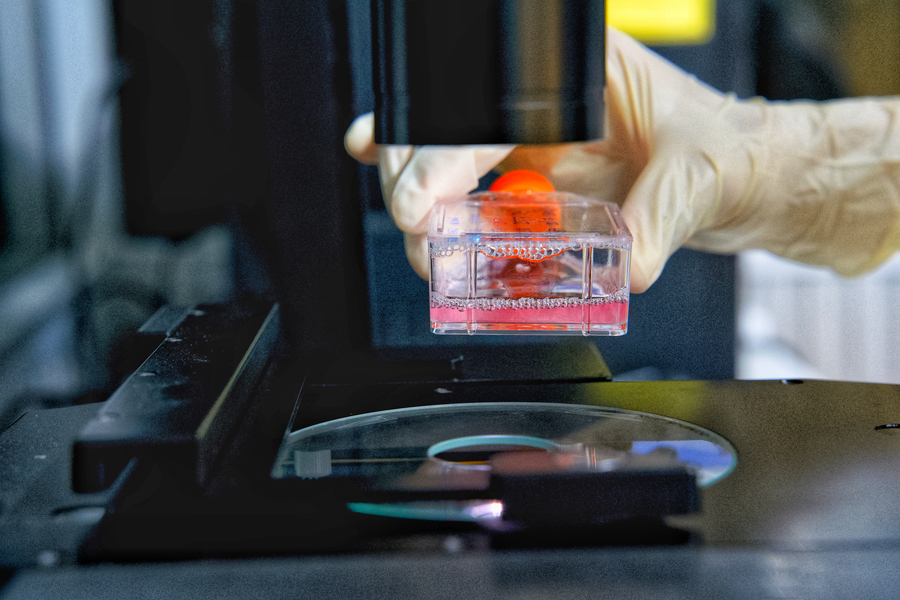Recent research highlights stem cell potential in regenerative medicine, giving scientists hope for alternative disease treatment measures. However, there are many ethical misconceptions about this type of research that most people do not understand.
Some stem cell research involves early-stage human cells, which most people believe only come from human embryos, raising questions about whether stem cell research is morally correct. This article aims to clarify these concerns regarding stem cell research.
What Are Stem Cells?
A stem cell is a blank, single cell that has the natural ability to generate new cell types. Thus, stem cells are the raw materials in the body. During cell division, stem cells form daughter cells, either becoming new stem cells through self-renewal or specialized cells through differentiation.
When stem cells undergo self-renewal, they create more opportunities for stem cells to turn into other cells in the body. Researchers utilize this quality by growing stem cell lines, which are stem cells that come from a single stem cell. The stem cells in stem cell lines do not differentiate into other specialized cells.
Stem cell researchers have shown interest in stem cells and are conducting clinical trials to utilize their benefits. Stem cell research helps scientists by:
Get Back Your Normal Life Again
As pain specialists, we can guarantee that we are more than qualified in alleviating your pain and treating your condition.
Demonstrating Diseases
Scientists use stem cells to test new drugs that experts develop from their research in treating demonstrated diseases. When researchers develop new treatment methods, they can use stem cells to ensure drug safety and effectiveness before using them.
In other words, scientists can generate specific cells from the stem cells associated with a particular disease. For example, scientists would create tissue cells from stem cells if experts needed to test a new drug for treating tissue damage. They would use these artificial cells to test the drug and confirm whether the new drug is safe and effective.
The scientists’ insights into drug treatment through stem cell research thus may provide further advancements in treating diseases. However, programming stem cells into specific cells is an ongoing endeavor. Experts continue to develop the best techniques to utilize this natural ability to copy other cells in the body.
Replacing Diseased Cells
Scientists utilize stem cells in clinical applications and regenerative medicine. Experts have associated stem cell therapies with the potential to help people with the following conditions:
- Alzheimer’s disease
- Amyotrophic lateral sclerosis (ALS)
- Burns
- Cancer
- Heart disease
- Osteoarthritis
- Parkinson’s disease
- Spinal cord injuries
- Stroke
- Type 1 diabetes
Researchers can utilize the stem cells’ natural ability to turn into other cells for regenerative purposes by guiding these cells to the body’s affected areas. For example, stem cells may potentially help generate healthy cells to help with intense knee pain.
Stem Cell Types
The two main types of stem cells researchers have been looking into include embryonic stem cells and adult stem cells, including:
- Embryonic Stem Cell: An embryonic cell is a blank cell that has not undergone differentiation, which is the process where cells develop a new function. They are immature and have yet to specialize into other cell types.
Once they multiply and differentiate, human embryonic cells become the cells filling the bones, muscles, and organs. This versatility is the primary ability that scientists utilize in regenerative medicine and disease treatment. - Adult Stem Cell: These stem cells occur in small amounts in most adult tissues, usually in fat or bone marrow. They are less pluripotent than embryonic stem cells, meaning their capacity for division and transformation into other cells of the body is limited.
Although adult stem cells have limited capacity for creating various cell types, recent evidence suggests that adult stem cells may create bone cells or heart muscle cells. With this recent discovery, researchers have utilized adult stem cells to test people with heart disease and neurological conditions.
Other stem cell types include:
- IPS Cell: Induced pluripotent stem cells are artificial stem cells. Scientists developed these cells from normal adult cells by altering their genes, essentially reprogramming them to function the way embryonic stem cells do.
- Perinatal Stem Cell: Medical doctors extract these stem cells before birth from human sources. For example, our practice isolates stem cells from the amniotic fluid at a young gestation age (or early pregnancy). We take pride in following the FDA’s ethical and legal guidelines for conducting this procedure that protect the embryo and woman from harm.
Stem Cell Science Controversy
Some researchers have expressed concerns over stem cell research because some practices will extract directly from growing human embryos. As a result, many people assume that all stem cell research preys on helpless embryos and is immoral. However, the FDA and The National Institute of Health have established guidelines for safe stem cell treatments and research to pull from less controversial sources.
Again, we only source from human amniotic fluid rather than extract from a live embryo. Our team believes these stem cells are the most effective and adaptive to give you a pain-free life and can be taken in a safe, humane way.
Our Modern Stem Cells Research Can Alleviate Your Pain
Progressive studies keep up with stem cell research to find new ways of treating diseases with differentiation technology. Bone, joint, tendon, and muscle pain has compromised the elevated quality of life people once lived, but stem cell therapies have helped alleviate those issues.
At Arizona Pain and Spine, we stay on top of the best stem cell research and utilize its benefits in our medical practices. Get in touch with our pain-management professionals by calling 480.986.7246 to learn more about stem cell therapy.

